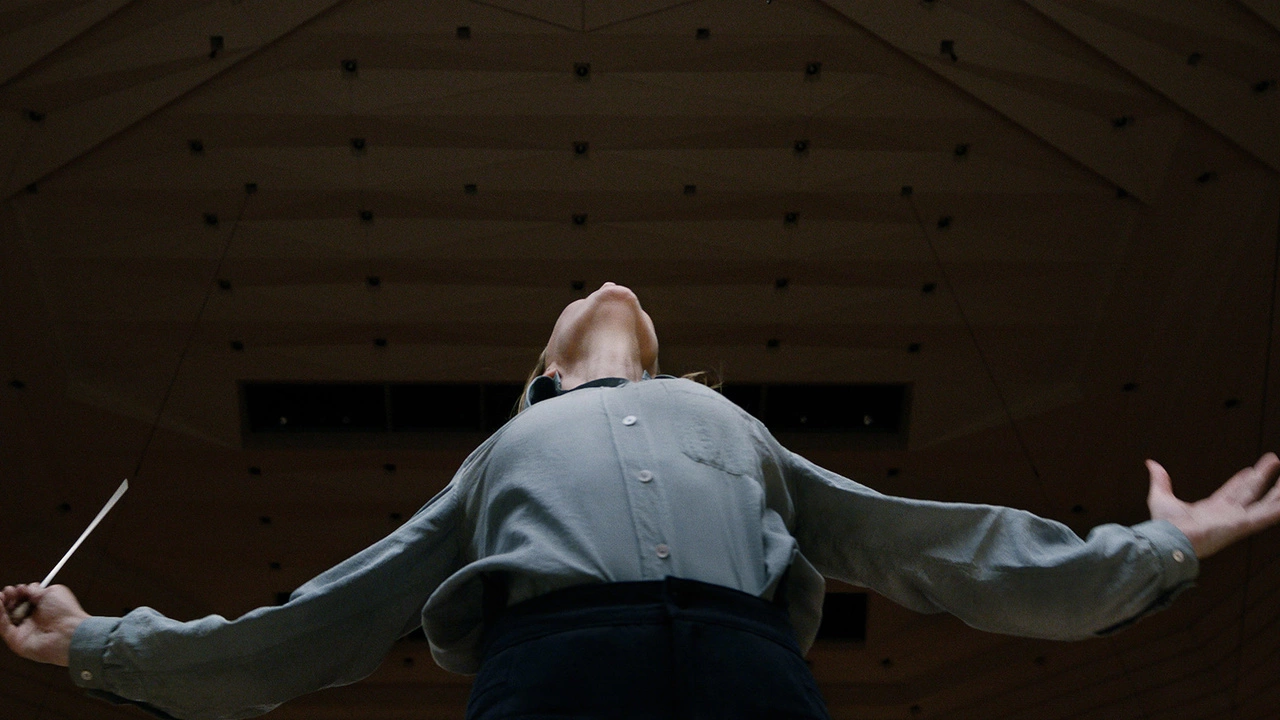In his first feature since 2006, Tár (2022), writer-producer-director Todd Field explores the phenomenon of cancel culture and does it in a remarkable, unapologetic manner. The psychological drama about the fictional orchestra conductor Lydia Tár is a spectacular piece of cinema: captivating and tense, with a superb performance from Cate Blanchett. Field’s film has been hailed by critics and has a chance to win 6 Oscars with nominations for best picture, actress, screenplay, director, cinematography and editing.
Tár deserves all the accolades with its subtly constructed spatiotemporal architecture, which moves us deeply like a musical composition and excavates our most repressed emotions. The scenes containing lengthy dialogues could be shortened, but the film certainly can be described as a cinematic masterpiece. I recommend it wholeheartedly and not only due to indisputable aesthetic values.

In Tár, aesthetics become ethics when the contraries between victim and perpetrator blur, considering our protagonist, female and homosexual, is revealed as a sexual predator grooming young women who rely on her support to make a career in the classical music industry.
The film divided the feminist activists. In her interview for The Times, Marin Alsop, the acclaimed conductor, name-checked in the first half an hour of Tár denounced the film as offensive: “I was offended: I was offended as a woman, I was offended as a conductor, I was offended as a lesbian.” She also mentioned that the film is a lost opportunity: “To have an opportunity to portray a woman in that role and to make her an abuser — for me that was heartbreaking,”

Alsop harsh criticism of Tár proves that the stories where the women are not incessantly shown as victims have to be made. The abuse comes from the place of power, and power is not only held by white cis men (although I do not deny that this group still has the most accessible access to it). Power is contextual, and it is very closely tight with the issue of privilege. White, cis, and male privilege plays a massive role in allowing entrance into the higher power structures. Still, there are also other factors that play a role, such as the economic situation. There is a twofold gender for minorities, and in its heart always lies a fixation on the aspects of identity, such as race, gender, and sexual orientation.
On the one hand, we (I use the plural here, given that as female, I consider myself a part of the minority) have to fight to arrive at the potions of power. We must work harder to prove to our still misogynist and racist society that we can “make it”. When we succeed, we are so protective over our resilience efforts in overcoming the obstacles that we require everyone else to put in as much as we did, without consideration of institutional racism and misogyny that must be tackled.
On the other hand, we become so obsessed with societal injustices that we cannot accept abuse as mainly dependent on power. As hard as it can be to accept a black, transgender lesbian with a disability can also be an abuser.

Tár, in many aspects, resembles the Danish film Queen of Hearts (2019), directed by May el-Toukhy, telling the story of Anne (Trine Dyrholm), a lawyer specialising in cases pertaining to female sexual abuse survivors. Anne, however, jeopardises both her professional as well as personal life by committing acts of sexual and emotional violence herself. The film shook me, and I found myself questioning if porting a female protagonist can be ethical, given the prominence of #MeToo movement and its way of exposing abuse against women.
We need films that do not over-fixate on the aspects of identity when portraying abuse. We must discuss these delicate topics and learn to discuss the negative facets of social phenomena such as #MeToo or cancel culture. Tár, aside from providing us with a captivating cinematic experience, forces us to truly question and re-think the politics of identity.

